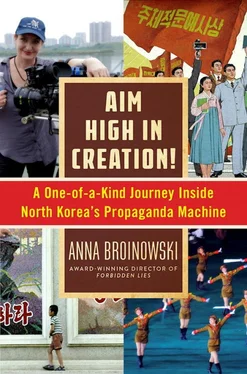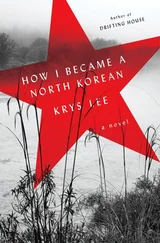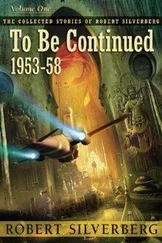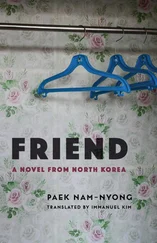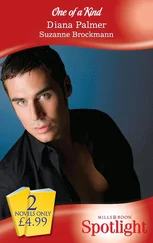The phone rings.
I check my watch. It’s past midnight. I pick up. The line clicks a few times. Then a disembodied voice comes through. The accent is precise and slow: part high-Raj colonial, part LA. “Madam Broinowski,” it says. “You want to come to my country?” “Yes,” I laugh nervously. “Yes, please. Where are you calling from?”
The voice ignores my question: “How long do you intend to stay?”
I start to feel uneasy. Is this an officer from one of the embassies I approached, or someone more malevolent? “Umm, only three days,” I answer, keeping my tone light. “I believe there is a visa waiting for me, at your embassy in Beijing?” The voice says nothing. I can hear it breathing, through the clicks. I panic and blurt: “I love the films of your country. I really do. That’s why I want to come. To understand your movies.”
“Ha, ha,” the voice says coldly. “I know.” And hangs up. I immediately want to cancel everything and stay with my little girl. What if I don’t come back? She needs me now, more than ever. I have become what the system identifies as “the primary carer”—and what my daughter knows as the parent-who-is-most-around. Then I remember Nick—brilliant, efficient Nick—who has been in and out of North Korea, unscathed, for the last twenty years. He will be beside us, every second of our stay. I kiss my daughter one last time and turn out the light.
BEIJING IS HOT AS A SAUNA, locked under a blanket of pollution. People in face masks hustle past, too cowed by the smog to notice the blue-sky tropical resorts on the billboards above. Nick works in an old part of town, a place still clinging to the city’s pre-revolution grandeur. Tucked behind a fruit market and an ornate iron gate, Koryo Tours fills the ground floor of an elegant thirties apartment block. It faces a small alley crammed with bicycles. Lizzette and I dodge a glistening wad of phlegm, freshly hoicked by a man playing Go, and pass a woman dangling her baby over a gutter to poo. We arrive at a pair of carved mahogany doors, and there’s the North Korean worker in the hard hat again—not a logo this time, but a real picture, on a real wall. We push the doors open and step inside.
Nick Bonner in 3D is even more energetic than he appears on Skype. Roguishly charming with electric blue eyes, he’s working three calls at once, briefing a guide, and flicking through stills from Comrade Kim Goes Flying , a European–North Korean feature film he’s just shot in Pyongyang. He gives us each a bear hug, then becomes distracted by a Danish backpacker and leaves us to peer around the lobby. It’s a portal between reality and North Korea’s parallel world. The walls are hung with propaganda posters: smiling women holding sheaves of golden corn, men waving flags, and North Korean soldiers doing ghastly things to pointy-nosed Americans. In one, a boot smashes a GI’s skull. In another, a fist slams nuclear missiles to splinters. In a third, a compass skewers a screaming Yankee to the paper. They are beautifully done, in the same graphic style I saw at Sunmo’s. But these slogans are painted by people who mean every word: Let us celebrate our bumper cotton crop! Let us advance the textile industry with Juche speed! Let us kill a hundred enemies with a hundred blows! Let us make the Yankee wolves kneel and drown in a river of blood!
Lizzette and I share a look. What are we getting ourselves into? Then Nick bursts in like a cyclone, demanding passports, photos, and euros. He crams the lot into a vinyl Air Koryo satchel, jumps on his bicycle, and zooms off. Apparently, we don’t need to front up to the North Korean embassy in person: Nick and the customs officer are old mates. Before we’ve finished our tea, he’s back again—with the precious media visa it has taken me two years, and a one thousand-kilometre detour through Tokyo and Seoul, to get.
Nick ushers us out to the chipped tables of Café Egypt and unleashes a torrent of Mandarin abuse at a beggar hustling Lizzette for money. Then he politely orders three coffees and gets down to business. The first thing we must understand about North Korea, he explains, is that the Leaders are gods: “Never just say ‘Kim’ when referring to them. Say ‘Your Dear Leader Comrade Kim Jong Il’ or ‘Your Great General Kim Jong Il.’ They know they’re not your leaders, but as a visitor, you must show respect. The second thing is, be careful what you film. Portraits of the Kims can only be shot wide: if you zoom in to any part, even the face, you can be sent home.” To help us understand how grave an offence this is, Nick reminds us how Muslims all over the world rioted when a Dutch cartoonist drew Mohammed: “The Kims are not politicians; they are a religion. Shoot only what the minders say, and don’t push it: no filming soldiers, or people in the street, or out of the van.” Nick looks at me, dead serious: “Ms. K will be watching. You need her trust.” I nod, daunted. I’ve met the formidable Ms. K once, on Skype. She has a strong jaw, no-nonsense hair, and a tight smile. Ms. K has worked with Nick for twenty years; she’s one of the few North Koreans trusted enough to travel. She Skyped me from Beijing, where she and Nick were setting up a tour of North Korean artists to Brisbane. Pyongyang had just tested a missile, and Australia refused to grant the North Korean visas. I was outraged at the censorship and keen for Ms. K’s approval. So I told her that my father was once the Australian ambassador in Seoul, known in Canberra as “Red Dick” thanks to his left-wing proclivities—I’d ask him to help. Ms. K giggled at Nick as if I wasn’t there: “She’s saying she’s important. She’s showing off.” Her voice was light, but I got the message. Ms. K has a bullshit meter a mile wide. I’m not going to push it.
Nick continues his survival tips. Once we are in Pyongyang, we will no longer be able to talk openly: in our hotel, the restaurants, or anywhere else. Whatever Ms. K has arranged is what we’ll do—without complaint. This may include doing things that seem completely nonsensical. But North Korea has its own kind of logic: as first-time visitors, we could cause serious problems without even realising it. I ask Nick to use the code word “rabbits” if we do anything wrong. The whole thing’s beginning to feel like Mission Impossible . Nick grins, gulps down his coffee, and jumps up. He’s got a gorgeous Italian girlfriend to say goodbye to. He tells us to make sure we’ve got enough batteries, cash, and snacks to take in: there are no ATMs or shops. “Oh,” he says, straddling his bike, “never call it North Korea. That’s a big no-no. It’s the Democratic People’s Republic of Korea. And get some duty-free. But don’t give it to them on the first day, or they feel compromised. Do it discreetly. Cheerio!”
Nick trundles off into the traffic, and Lizzette goes searching for euros and yuan: the only currency we can use, once inside. I wander through the mall to soak up my last taste of capitalism. The Apple logo and Nike swoosh glow back at me like old friends. At the top of a glassy skyscraper, Cate Blanchett cradles a jar of SK-II Essential Power Cream. I gaze at her ethereal face, struck by the absurdity of fate. I once acted in a play with Cate, before she shot to stardom. We earned $200 a week and swapped fart jokes in the pre-show warm-ups. Standing beside her luminous presence on that tiny Sydney stage, I knew she was destined for greatness—and my own less-salubrious future belonged firmly behind the lens. And now there she is, my earthy former colleague: a million-dollar brand at the top of the consumer juggernaut, endorsing moisturiser to support her kids. And here I am, about to step off the same juggernaut to support mine—by travelling back to 1953. That’s the year the Democratic People’s Republic of Korea sealed itself off, permanently, from materialism. The North Koreans have never heard of Essential Power Cream. I wonder what else they don’t know.
Читать дальше
